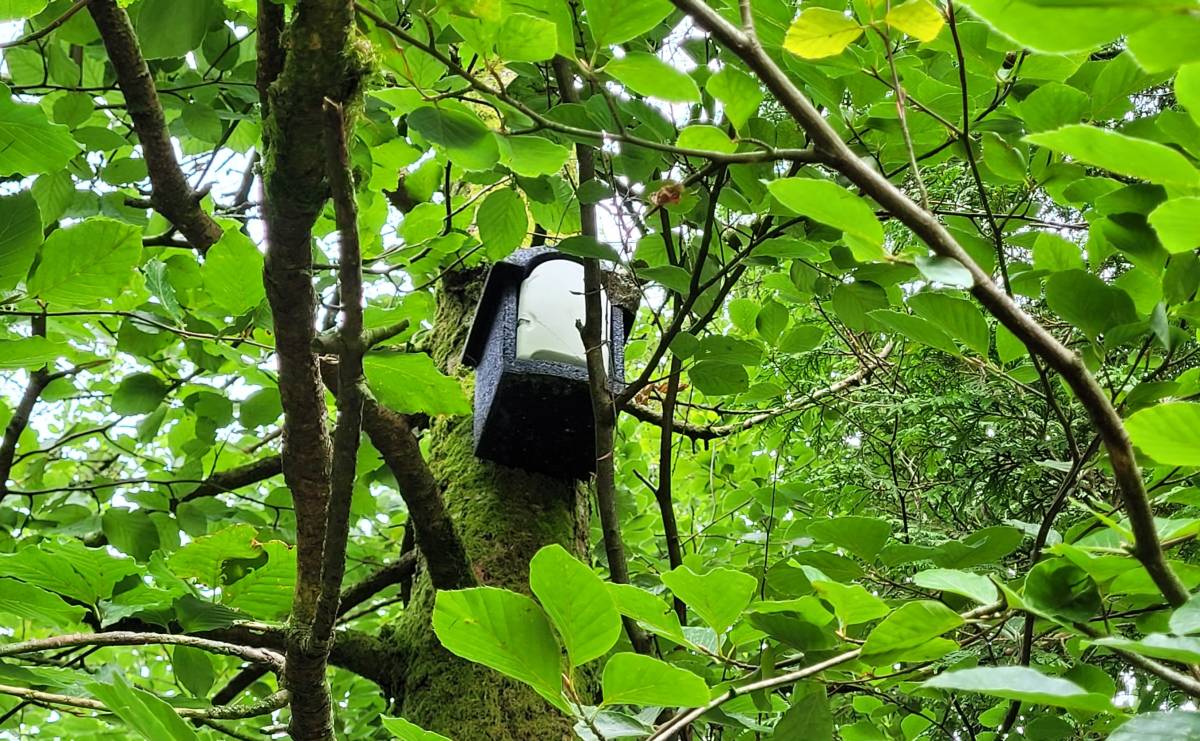Helping Bats, Helping You
Bats get a bad rep, but really, they can help us and the environment. In this blog, we will explore the benefits that having bats nearby can bring to you, and what you can do to help your local bat population!
What do bats do for you?
Bats are an important part of natural ecosystems, and provide many ecosystem services. Bats are what we call an indicator species - their presence gives us an insight into the state of an ecosystem. The more bats are around, the better an ecosystem will be performing. This is because bats are top predators, so where there is a thriving population of bats, there is also a thriving community of insects the bats can feed on, and a thriving community of plants that the insects can feed on.
In some parts of the world - particularly the tropics - bats are pollinators! Frugivorous (fruit-eating) tropical bats are responsible for pollinating many of our favourite fruits, such as bananas, mangoes, durian, guava, and agave - which is used to make tequila! We have bats to thank for many tasty treats. Frugivorous bats also play a part in seed distribution and reforesting. Bats consume fruit seeds and excrete them through their droppings, which has been found to aid reforesting efforts in neotropical areas. Although far away from home, bats are contributing to much of the world’s beauty and in helping to regrow some of its most iconic and biodiverse habitats.
Closer to home, in the UK, bats are important in their role as controllers of pests. All 18 UK bat species are insectivorous (they eat insects), and as such, they have a positive impact on agriculture and gardening by consuming all of the bugs that would otherwise be eating crops and plants. Having a bat roost in your home is basically like having a live-in pest controller. When you’re sitting outside in your garden in the warm summer months, hoping not to get bitten by any midges, the bats have got you covered.
What can you do for bats?
Many of us hope to have a positive impact on our local environments, but aren’t quite sure where to start. If you’re looking to help your local bats, here’s what we advise.
- Have a dark space in your garden. This could be as simple as making sure your curtains/blinds are closed, or limiting the usage of any external light. Bats are nocturnal animals, so artificial light at night has the potential to disturb them. Consistent artificial light near roosts may cause more ‘light sensitive’ bat species, such as whiskered bats or Natterer’s bats, to abandon their roosts.
- Build a pond or water feature. Ponds will attract insects, which will give bats additional foraging opportunities.
- Let your garden go wild. Leaving a patch of unmowed lawn is generally great for biodiversity, allowing more complex assemblages of plants to grow which can support greater insect populations, and these insects will be a great snack for your local bats.
- Stop your cats from attacking bats. Cat attacks are one of the biggest causes of bat injuries. Limiting your cats’ outdoor activity, particularly at night and during the core bat active season (May - September), or attaching a bell to its collar to alert local wildlife to its presence, can reduce the injuries and casualties caused by domestic cats.
- Install a bat box. Bat boxes can be installed on houses or trees and act as an artificial roost where natural structures are lacking. There are many options out there - we recommend NHBS bat boxes or any bat boxes approved by the Bat Conservation Trust. Please note - all bats are protected under UK law, which means that their roosts are also protected. Once installed, it is illegal to disturb a bat box without a bat licence. If you have any concerns about your bat box or believe it needs to be repaired or replaced, please contact us!
- Plant some night-scented plants. Insects that forage in plants during the day are attracted to brightly coloured flowers, but nocturnal insects rely less on visual signals and more on other environmental signals, such as smell, to attract them to plants. Having a healthy population of nocturnal insects is essential for bats as these are their food source. We suggest flowers such as:
- Evening primrose
- Night-scented stock
- White jasmine
- Honeysuckle
- Sweet rocket
- Night-scented catchfly




